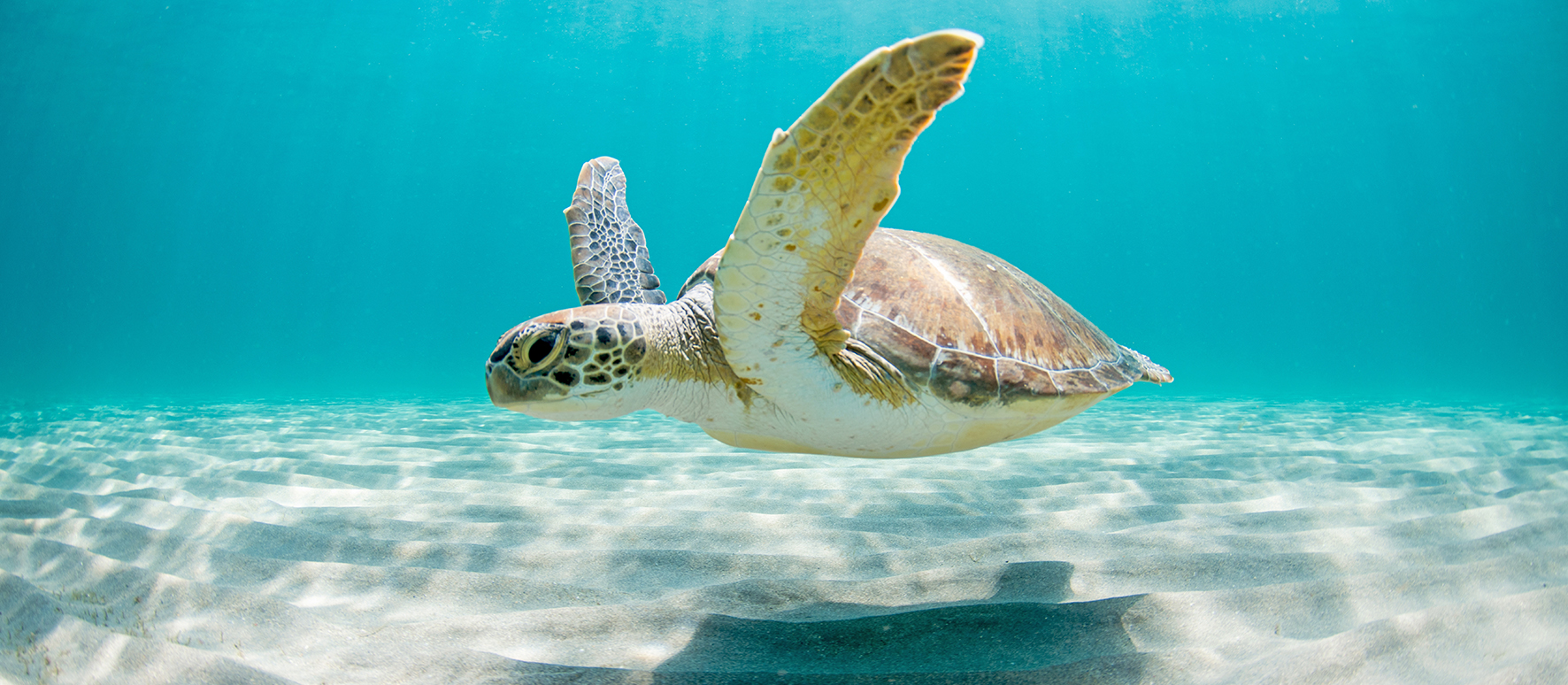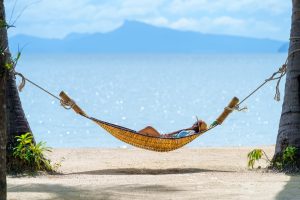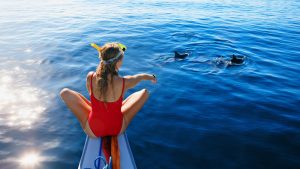The Outer Islands of the Seychelles are sandy coral cays with miles of pristine white beaches which form some of the most important nesting sites for Green and Hawksbill Turtles in the Indian Ocean. The Alphonse Group is no exception; Blue Safari Seychelles’ Islands Conservation Society (ICS) has been monitoring the nesting success of both species since the conservation centre opened in 2007 – one of the longest-running databases in the Seychelles.
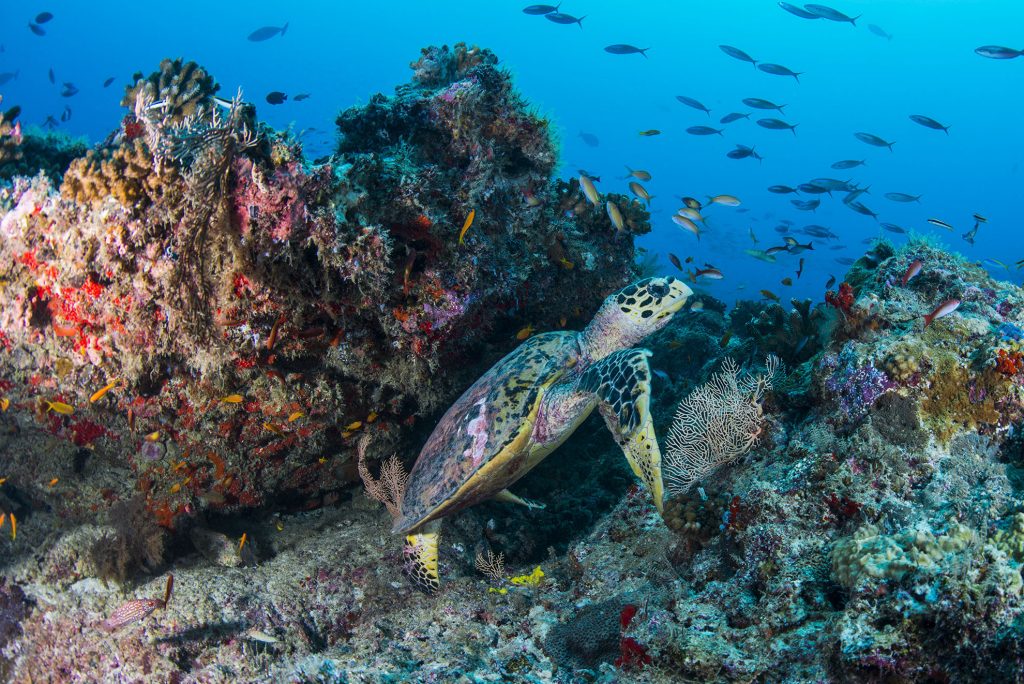
This crucial resource provides an incredible overview of how well these two Critically Endangered species are doing around the islands. When females are encountered in the process of nesting, the conservation team attaches a flipper tag which has a serial number so if that female is seen in the future the nesting frequency and site fidelity can be recorded.
Since 2007 the number of nesting turtles across the atolls has increased, most likely due to the ban on the harvest of sea turtles for meat in 1994 across Seychelles. As turtles are long-lived, slow-reproducing animals the positive effects of this ban would take years to show an increase in the number of turtles, which is why long-term databases such as those the ICS is keeping in the Outer Islands are so important.
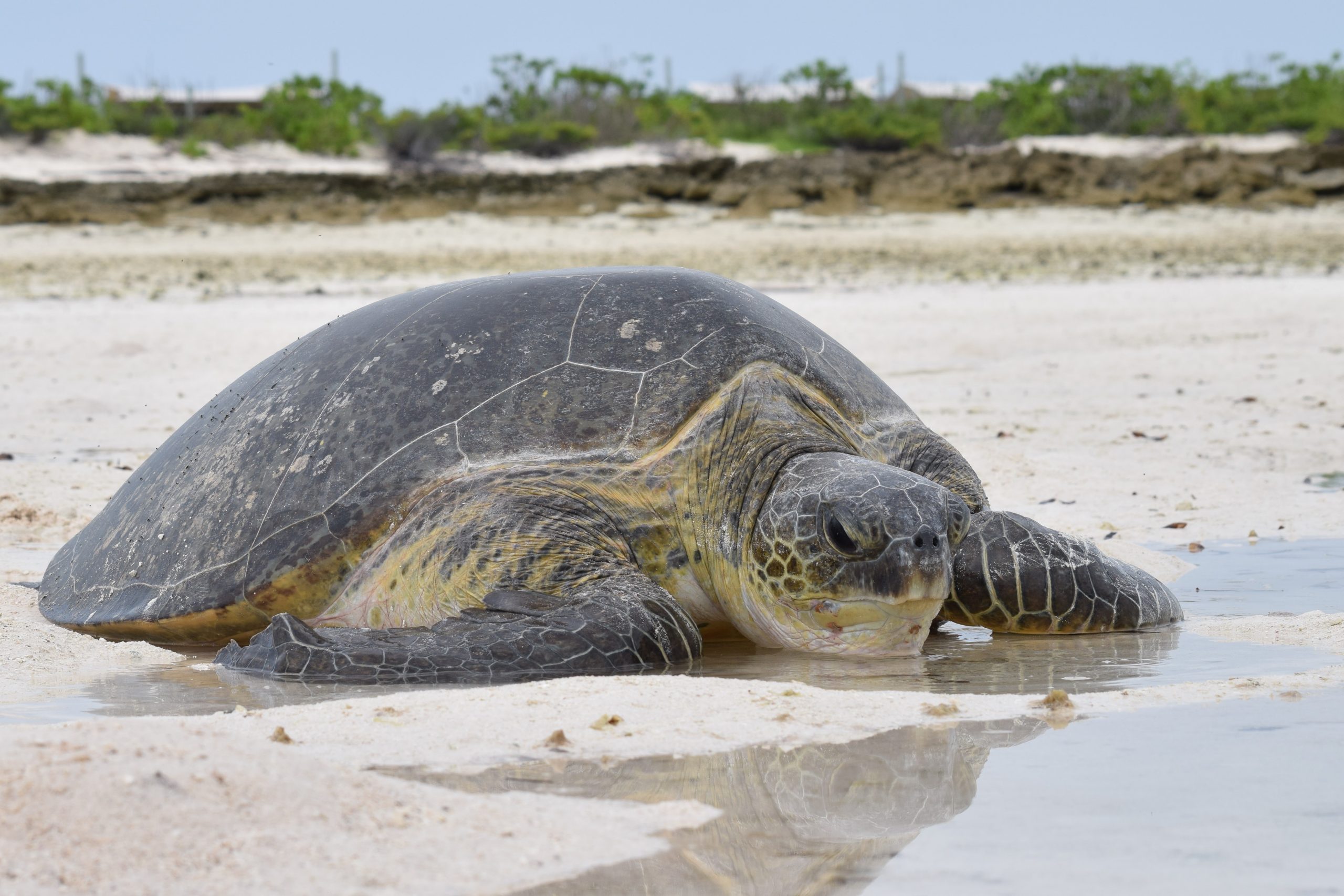
To date, there are 130 Green Turtles that nest around the Alphonse Group. This species nests exclusively at night when it is cooler as the nesting process takes up to 4 hours with peak nesting activity being from June – September. 76 Hawksbills nest during the day from October to March with the eggs of both species taking +/-60 days to hatch. Although the females will lay three of four clutches of 120-150 eggs in a nesting season, the survival rate of juveniles is incredibly low with as little as one in 500 making it to adulthood. Due to the lack of fishing pressure around the Alphonse Group, the number of predators is high with Herons, Crabs, and Frigatebirds attacking the hatchlings on the beach as Giant Trevally, Moray Eels, and Sharks wait in the shallows.
As baby turtles need all the help they can get making it to adulthood out in the big blue, Blue Safari Seychelles keeps their resorts as ‘turtle-friendly’ as possible by taking advice from regional experts. Their protection methods include:
- All veranda lighting on beach-side guest rooms is red or green which are believed to be wavelengths that do not impact the eyesight of turtles. This prevents hatchlings from getting confused when finding their way to the ocean.
- All beach-crest vegetation is kept intact and rooms are set back at least 25m from the beach crest to further limit light pollution and disturbance to nesting females.
- Ocean-facing windows all have blackout curtains which are closed by housekeeping in the evenings. The beachside dining only uses solar lanterns and clip-on LED menu lights and roadside lighting is all low-lumen, hooded, and low to the ground. All measures are designed to prevent hatchlings’ disorientation.
- No heavy machinery is allowed on the beaches and the beaches are not raked or altered in any way except in areas where erosion is threatening critical infrastructure.
- Guests are encouraged to join the conservation team on daily turtle patrols.
Whilst it is important to protect the turtles in critical life stages such as nesting and hatching, sea turtles are also famous for their incredible migrations so understanding where they go and incorporating foraging grounds into protected area design is vital. In 2017/2018 10 female post-nesting turtles were fitted with satellite tags for tracking; two Green Turtles travelled to Boudeuse, one remained at the south of St Francois whilst four travelled over to East Africa. One made a journey of over 3,984km to her foraging grounds in Northern Kenya where she spent 119 days until her device stopped transmitting. The two tagged Hawksbills travelled northwards to the Seychelles bank and the other headed to Ile Platte. The project was implemented by ICS in collaboration with the Alphonse Foundation and Luth Association.
Blue Safari Seychelles’ philosophy is a combination of sustainable travel with luxury accommodation, where guests can be assured of unforgettable experiences combined with the highest level of attentive service.
For information on Blue Safari Seychelles, please visit www.bluesafari.com

